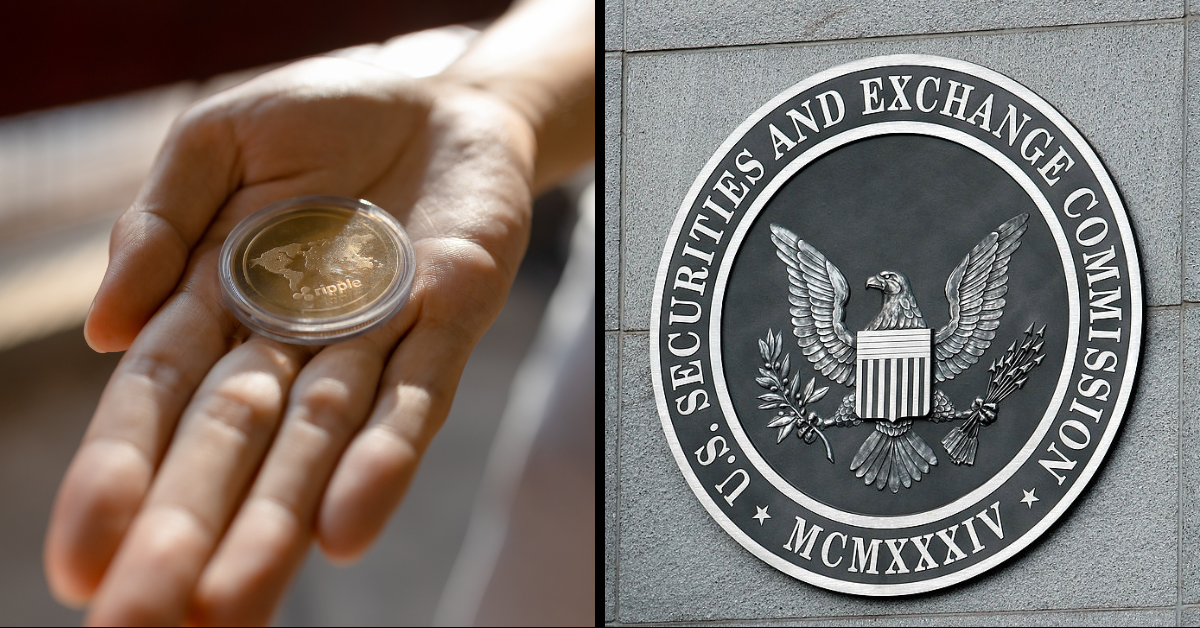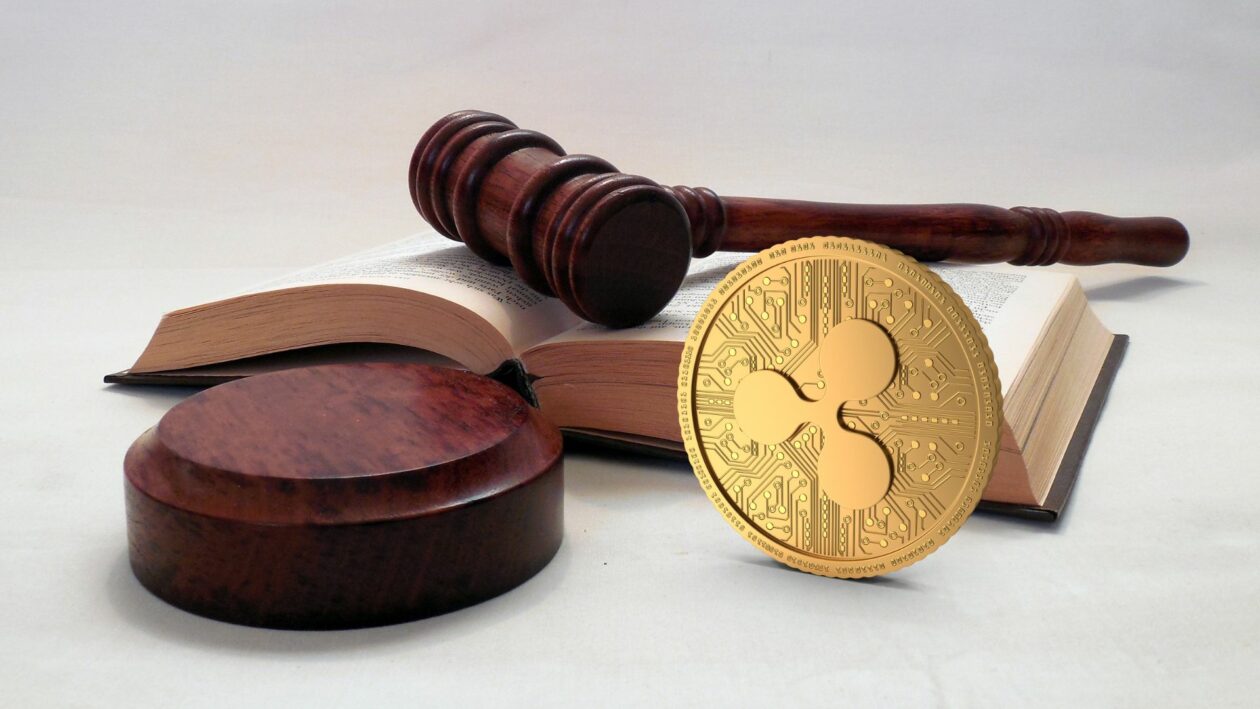When the SEC decided to take on Ripple and its XRP token, it was like lighting a match in a room full of gasoline. The lawsuit has become one of the most talked-about events in the cryptocurrency space, and for good reason. This isn’t just about Ripple—it’s about the future of digital currencies as a whole. If you’re diving into this story, you’re entering a world where regulators, innovators, and investors collide in a high-stakes game of legal chess.
Imagine this: a company that’s been around since 2012, building a payment network designed to revolutionize how money moves across borders. Then, out of nowhere, the Securities and Exchange Commission steps in, claiming that XRP is an unregistered security. It’s like when your favorite sports team gets hit with a sudden penalty in the final quarter. Everyone’s asking the same question: What does this mean for Ripple, XRP, and the entire crypto ecosystem?
This isn’t just a legal battle; it’s a test of how governments and financial institutions view cryptocurrencies. Are they assets, currencies, or something else entirely? The outcome of the SEC Ripple XRP lawsuit could shape the future of blockchain technology. So, buckle up, because we’re about to break down everything you need to know about this epic showdown.
Read also:Xavier Basketball The Thrilling World Of Musketeers On The Court
What’s the SEC Ripple XRP Lawsuit All About?
The SEC Ripple XRP lawsuit started in December 2020 when the Securities and Exchange Commission filed a complaint against Ripple Labs and its executives, Brad Garlinghouse and Christian A. Larsen. The SEC accused Ripple of conducting an unregistered securities offering worth billions of dollars through the sale of XRP. Now, before we dive deeper, let’s get one thing straight: this isn’t just about Ripple—it’s about the classification of cryptocurrencies in general.
The SEC argues that XRP is a security, which means it should have followed the same rules as stocks or bonds. Ripple, on the other hand, claims that XRP is a utility token designed to facilitate fast and cheap cross-border payments. It’s like two sides of the same coin (pun intended), and the court is the referee trying to decide who’s right.
Why Is This Lawsuit Such a Big Deal?
This lawsuit isn’t just about Ripple or XRP. It’s about setting a precedent for how cryptocurrencies will be regulated in the future. If the SEC wins, it could mean stricter regulations for other projects. On the flip side, if Ripple prevails, it could pave the way for more innovation in the crypto space. Here are a few reasons why this case matters:
- Impact on Investors: If XRP is classified as a security, it could affect the value of the token and the rights of its holders.
- Regulatory Clarity: The outcome will provide much-needed guidance for other blockchain projects.
- Market Sentiment: The crypto community is watching closely, as this case could influence investor confidence.
A Brief History of Ripple and XRP
Ripple Labs, the company behind XRP, was founded in 2012 with a mission to transform global payments. Its flagship product, RippleNet, uses blockchain technology to enable fast, low-cost transactions. XRP, the native cryptocurrency of the Ripple network, plays a crucial role in this ecosystem by acting as a bridge currency for cross-border transfers.
But here’s the kicker: Ripple didn’t create XRP through an Initial Coin Offering (ICO). Instead, the company pre-mined the tokens and has been selling them over time to fund its operations. This approach has raised eyebrows, especially since the SEC claims that these sales qualify as a securities offering.
Ripple’s Key Players
Let’s take a quick look at the people behind Ripple:
Read also:Immigration Advocates Protest Trumprsquos Detention Of Jeannette Vizguerra
| Name | Role | Key Contributions |
|---|---|---|
| Brad Garlinghouse | CEO of Ripple | Known for his outspoken defense of XRP and Ripple’s business model. |
| Christian A. Larsen | Executive Chairman | Co-founder of Ripple and a key figure in the company’s leadership. |
Understanding the SEC’s Argument
The SEC’s case against Ripple revolves around the Howey Test, a legal framework used to determine whether an asset qualifies as a security. According to the SEC, XRP meets the criteria because:
- Investors bought XRP with the expectation of profit.
- Ripple and its executives played a central role in promoting and profiting from XRP sales.
- The value of XRP depends on the efforts of Ripple’s team.
Think of it like this: if you invest in a startup, you’re relying on the founders to make that company successful. The SEC argues that XRP holders are in a similar position, making it a security under the law.
Ripple’s Counterargument
Ripple isn’t backing down without a fight. The company contends that XRP is a utility token, not a security. Here’s how they’re making their case:
- XRP serves a functional purpose within the Ripple network.
- Other cryptocurrencies, like Bitcoin and Ethereum, aren’t classified as securities.
- The SEC’s actions are inconsistent and lack clear guidelines for the industry.
The Legal Battle: Key Developments So Far
Since the lawsuit was filed, there have been several notable developments:
In May 2021, Judge Sarah Netburn allowed the case to proceed, rejecting Ripple’s motion to dismiss. This was a major blow for the company, but they weren’t about to give up. Ripple continued to gather evidence and build its defense, arguing that the SEC’s stance on XRP is unfair and inconsistent.
Fast forward to 2023, and the case is still ongoing. Both sides have presented their arguments, and the court is now reviewing the evidence. It’s like watching a chess match where every move has the potential to change the game.
What’s Next for the Lawsuit?
As of now, the court is expected to issue a ruling in the coming months. If Ripple wins, it could set a precedent for how cryptocurrencies are treated under U.S. law. On the other hand, a victory for the SEC could lead to stricter regulations and increased scrutiny for blockchain projects.
How Is the Crypto Community Reacting?
The SEC Ripple XRP lawsuit has sparked intense debate within the crypto community. Some see it as an attack on innovation, while others believe it’s necessary to protect investors. Here’s what people are saying:
- Supporters of Ripple: They argue that the lawsuit is stifling progress and could harm the entire crypto industry.
- Pro-SEC Advocates: These individuals believe that regulation is essential to ensure transparency and fairness in the market.
It’s like a heated debate at a family dinner, where everyone has a strong opinion and nobody’s backing down. The truth is, this case affects everyone who’s invested in the future of digital currencies.
Impact on XRP’s Value
Since the lawsuit began, XRP’s price has been volatile, reflecting the uncertainty surrounding its legal status. Investors are watching closely, trying to gauge whether Ripple will emerge victorious or if the token’s future is in jeopardy.
What Does This Mean for the Future of Crypto?
The outcome of the SEC Ripple XRP lawsuit could have far-reaching implications for the cryptocurrency industry. If Ripple wins, it could encourage more projects to innovate without fear of excessive regulation. However, a victory for the SEC might lead to stricter rules, potentially stifling growth.
It’s like walking a tightrope: too much regulation could crush innovation, but too little could leave investors vulnerable to scams. Striking the right balance is crucial for the long-term success of blockchain technology.
Potential Outcomes and Their Implications
Here are a few possible scenarios and their potential impact:
- Ripple Wins: Cryptocurrencies may enjoy more freedom to operate, but regulators might push for clearer guidelines.
- SEC Wins: Stricter regulations could follow, affecting how tokens are issued and traded.
- Compromise: Both sides might agree on a middle ground, allowing for innovation while ensuring investor protection.
Conclusion: What Should You Do Next?
The SEC Ripple XRP lawsuit is more than just a legal battle—it’s a defining moment for the crypto industry. Whether you’re an investor, a developer, or simply someone interested in the future of finance, this case has something for you to consider.
So, what’s next? Here’s what you can do:
- Stay informed about the latest developments in the case.
- Think critically about how regulation affects the projects you support.
- Engage in discussions with others to gain different perspectives.
And don’t forget to share your thoughts in the comments below or on social media. The more voices we hear, the better we can understand the complexities of this issue. Together, we can shape the future of cryptocurrencies—one conversation at a time.
Table of Contents
What’s the SEC Ripple XRP Lawsuit All About?
Why Is This Lawsuit Such a Big Deal?
A Brief History of Ripple and XRP
Understanding the SEC’s Argument
The Legal Battle: Key Developments So Far
How Is the Crypto Community Reacting?
What Does This Mean for the Future of Crypto?
Potential Outcomes and Their Implications
Conclusion: What Should You Do Next?
Remember, the crypto world is constantly evolving, and staying informed is key. Keep your eyes peeled for updates, and don’t hesitate to dive deeper into the topics that interest you. After all, the future of finance is being written right now, and you have a front-row seat to the action!


